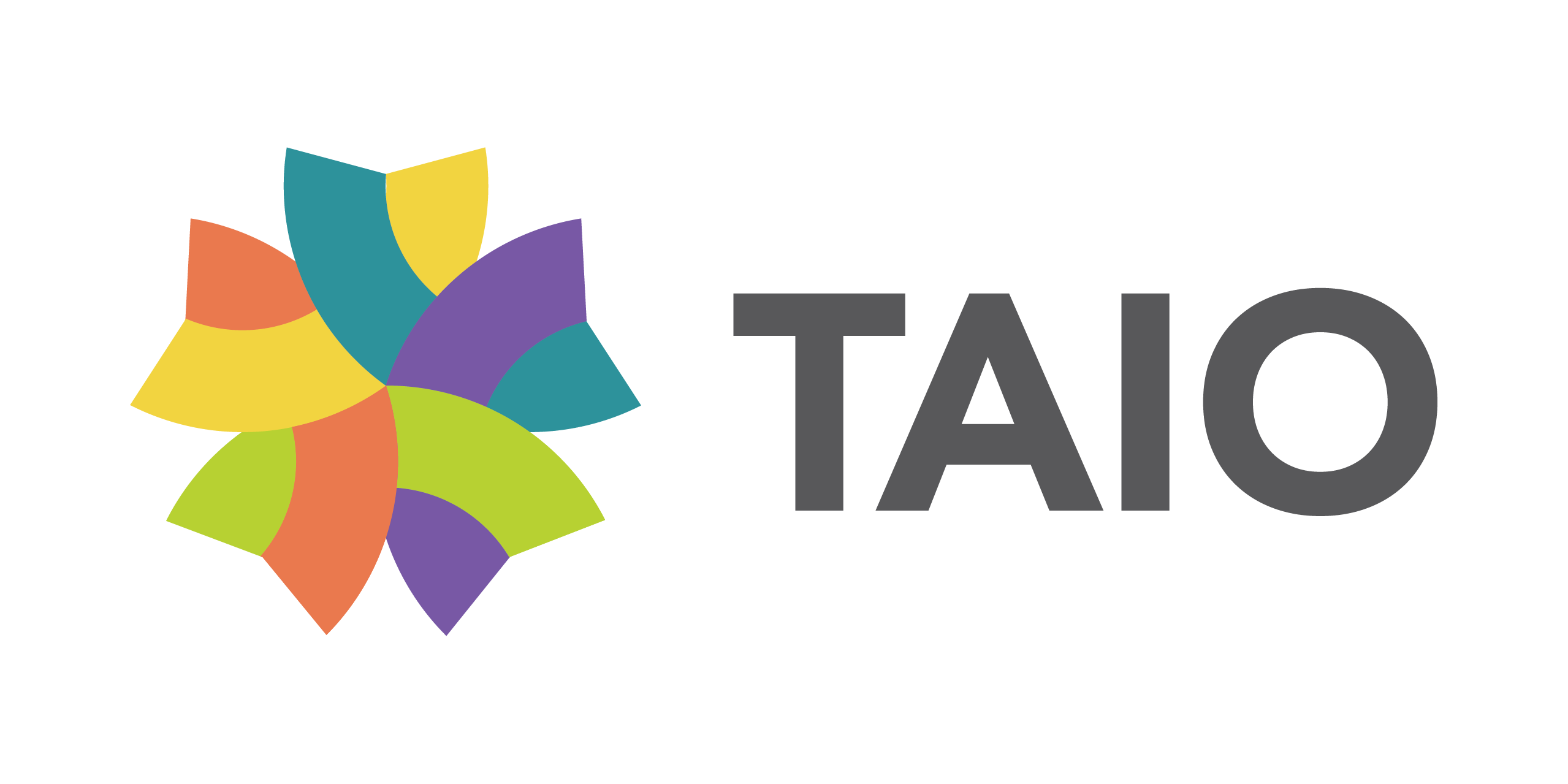Outsourcing parts of your home healthcare service has benefits, but managing an offshore team can be challenging. Many providers struggle with onboarding and effectively managing these teams, a common issue in business process outsourcing.
So how can you select the right individuals? What about legal and compliance requirements? And how do you bridge the gaps posed by cultural differences, time zones, and language barriers?
The whole process needs a clear vision from the get-go and a strong system for keeping things on track. It’s about building a good working bond between teams from different parts of the world to work towards the common goal of improving patient care and making operations smoother.
In this comprehensive guide, we’ll discuss strategies on how you can onboard and manage your offshore teams. We’ll also offer insights that will transform the way you approach home health care, making the management of your offshore team a smoother process.
On this page
Key Takeaways

Recruiting a suitable offshore team through reputable agencies ensures smooth operations and quality service in the home healthcare sector.

Effective communication solutions and regular check-ins help in keeping everyone updated, fostering a collaborative environment among onshore and offshore teams.

Continuous improvement, supported by technology and regular feedback, enhances the overall delivery of service, making the management of offshore teams more effective.
STEP 1
Select and Recruit Your Offshore Team
Taking the first step into business process outsourcing begins with selecting and recruiting the right offshore team. This phase is crucial as the right team will ensure a smooth transition and efficient handling of the business processes at hand
Find Reputable Business Process Outsourcing Partners
Partnering with a reputable BPO company in the offshore location is a wise move. These agencies have the local know-how and a pool of potential candidates who could be a good fit for your needs.
Whether you’re looking for a development team or customer service associates, a good BPO company can help you effectively manage your operations. They can sift through numerous applicants, making sure that the ones who come to your table meet the requirements and standards essential for serving in the home health care sector.
Communicate Clearly
Communication is key during this stage. Clearly outlining the job requirements, expectations, and the nature of the tasks involved will attract the right candidates.
Moreover, due to the critical nature of home health care services, ensuring rigorous background checks is non-negotiable. These checks help in verifying the credibility and competence of the remote team members.
Collaborate with a Seasoned BPO Company
It’s advisable to seek assistance from established BPO companies with a clear understanding of the medical home health care domain. This not only streamlines the recruitment process but also ensures that the offshore resources you acquire are competent and dedicated.
However, there’s also merit in considering smaller BPO companies. Often, larger and more established BPOs may not be keen to work with smaller-sized businesses. Smaller BPOs can be a viable option, as they offer a more personalized approach that can be tailored to your specific needs.
- For larger companies seeking BPO services, meet with the actual team members who will be handling your account, not just the sales or marketing representatives. Ensure you’re interacting with the managers or higher-level executives who will directly oversee your services. This ensures continuity and clarity from the sales phase through to the operational phase.
- When considering smaller BPOs, it’s equally important to meet the management team and also vet the founders. Their hands-on approach and direct involvement can significantly influence the quality of the services you receive, making it crucial to assess their experience and commitment to home health care outsourcing.
Collaborating with a BPO vs. hiring offshore freelancers
Choosing between a BPO partner and a freelancer boils down to how directly you want to manage your staff. If you’re willing to deal with day-to-day challenges such as IT issues, HR questions, and taxation, then you can choose the cheaper alternative and hire an offshore resource directly.
However, if you want to focus on your business and not deal with recruitment, training and productivity managment, partnering with a BPO is the less time consuming and more cost-effective move. Although a BPO can cost around $20 more per day per agent, it gets you staffing predictability, experts who can transition your process for offshore employees, and legal protection since you’re not hiring anyone directly.
Engaging with freelancers can be a great idea until something goes wrong. Once you encounter issues, disgruntled employees can file cases against you. You can end up with a complicated and expensive HR situation that needs to be managed full time. All this can be avoided if you have an outsourcing provider that does all this work for you.
Ultimately, you can avoid hiring, HR, management and legal expenses, and bring yourself to focus on more important things by partnering with a BPO company.
STEP 2
Check Legal and Compliance Requirements

Before commencing with your dedicated offshore team, it’s crucial to know and adhere to the legal and compliance requirements associated with business process outsourcing. This step makes sure everything runs smoothly and within the law.
Understand the Legal Implications of Hiring Offshore
Hiring from another country means you need to understand the labor laws of that place. These laws talk about work agreements, working hours, and rights of the workers.
There might also be global rules or agreements that you need to be aware of. Knowing these laws and rules helps you start on the right foot with your offshore team and avoid legal problems later.
Adhere to Health Care Standards, Policies, and Protocols
Health care has strict rules, especially about keeping patient data safe and private. In the U.S., providers are required to comply with the Health Insurance Portability and Accountability Act of 1996 (HIPAA). The law sets the standard for protecting sensitive patient data, and any organization dealing with protected health information (PHI) must ensure that the required physical, network, and process security measures are in place and followed.
It’s important that your remote team follows these rules and protocols to keep your services trustworthy. Non-compliance with HIPAA and similar regulations in other regions can result in severe penalties and can critically damage the reputation of health care providers.
Training and regular checks can help make sure the offshore team knows and follows the needed health care rules, which helps in providing good and reliable services.
It’s not just a matter of trust but also a legal obligation to ensure that patient data remains confidential and secure. In many regions, non-compliance with these data privacy regulations can result in severe penalties and tarnish the reputation of health care providers. It’s essential that your remote team is well-versed with these protocols, understanding not just the letter but the spirit of these regulations.
Checking Tax- and Government-Related Compliance Requirements
Handling taxes and other government-related rules is also very important. Making sure you follow tax rules, in both your country and the global team’s country, is a basic requirement.
You might need to talk to legal and financial professionals to understand the tax policies and government regulations related to offshore hiring. Following these rules keeps your work legal and helps build a good reputation for your organization.
STEP 3
Provide Necessary Training

Proper training is essential when working with remote teams in other countries. It sets the stage for better understanding and smooth operations.
- Comprehensive Training Programs: Providing a detailed training program is the first step to equip your offshore staff with the necessary knowledge and skills. If you don’t have a training program, your BPO partner can develop one for you. This can be helpful even if you already have training material. Your BPO can adapt the material to make it more palatable for the foreign staff. They’ll make sure to cover some basics that may not be common knowledge outside the U.S.
- Software Systems Training: Software systems are often the backbone of operations. It’s important that every team member understands how to use the necessary software efficiently to perform their tasks. This training should cover the basics as well as troubleshooting common issues to ensure smooth operations.
- Cultural Training: When working with offshore teams, understanding and respecting intercultural differences is vital. Cultural training can help to bridge any gaps and promote a better working relationship between teams across different geographical locations. This process is often overlooked. Ignoring this can lead to miscommunication between the onshore and offshore teams.
- Regular Refresher Courses: The health care sector is continuously evolving, making it crucial to stay updated on the latest guidelines and technologies. Regular refresher courses can ensure that your offshore crew remains updated and compliant with the current standards and practices.
- Updates on New Protocols and Technologies: Introducing new protocols or technologies should come with proper training to ensure smooth implementation. Timely training on these new introductions can help in maintaining the quality of services provided by your offshore team.
STEP 4
Use Communication Tools and Cloud Solutions
Good communication is key when managing offshore teams, especially in home health care where clear instructions are critical. Utilizing communication apps like video conferencing platforms can facilitate clear communication between onshore and global team members.
Invest in Robust Communication Platforms
Getting strong communication apps helps a lot when working with a global team.
Video calls, for instance, let everyone see each other while talking about important topics, which helps in understanding each other better. Messaging platforms like Slack keep conversations quick and secure, which is essential to keep patient information private.
Tools like Jira, Trello, or Asana are great for keeping track of who’s doing what, and by when. They help manage tasks in one place, so everyone knows what needs to be done.
Set Regular Check-ins, Updates, and Feedback Sessions
Having regular check-ins helps to keep everyone updated. A weekly video call can be a good time to talk about ongoing work, solve problems, and give feedback. It’s also a time to recognize good work and discuss any challenges.
Moreover, top-tier BPO providers offer weekly, monthly, quarterly and yearly business reviews. This keeps them calibrated with you and ahead of any looming issues.
Keeping a set time for these check-ins creates a routine and helps everyone know what’s expected.
Cloud Solutions for Document Sharing and Collaborative Work
Cloud solutions like Google Drive, Dropbox, or OneDrive make working together on documents easy and quick.
These tools let teams share and edit documents in real-time, which is useful when working from different places and various BPO companies. They also keep documents safe and easy to find whenever needed. This way, a lot of time is saved as documents don’t have to be sent back and forth through email, making work more efficient for the global team.
STEP 5
Ensure Data Security
When dealing with sensitive health information, it’s important to ensure data security. Especially in home health care, a slip in data protection can lead to serious problems.
Choose a BPO partner familiar with key industry rules. In health care, HIPAA compliance is non-negotiable. This ensures that the BPO is equipped and committed to maintaining the confidentiality and security of patients’ health information.
PCI-DSS (Payment Card Industry Data Security Standard) is crucial for teams handling payment information. It’s a standard that ensures all companies that accept, process, store, or transmit credit card information maintain a secure environment.
For a broad approach to information security, ISO/IEC 27001 is a global standard. It sets out the criteria for an information security management system (ISMS) and ensures that the organization’s data remains secure.
STEP 6
Collaborate with Onsite Team

Working together is crucial in delivering good health care services. When your onshore and offshore teams work well together, tasks get done quicker and everyone learns from each other.
Consider organizing virtual parties or sessions where both onshore teams and remote units can interact informally. This helps in overcoming cultural challenges and promotes a clear direction for collaborative projects.
A critical integration stage for new remote team members is the “nesting” period. Initially, when joining a BPO agency, they undergo training ranging from a few days to three weeks.
During the 1-2 week nesting phase, staff handle live cases or calls while paired with experienced onshore colleagues. This buddy system lets new members apply their training practically with the support of immediate guidance, allowing them to ask questions and learn best practices while receiving real-time feedback and mentorship from their onshore partner.
STEP 7
Understand and Respect Different Cultures
Working with an offshore team brings a blend of cultures into the workplace. It’s vital to understand and respect the differences to create a harmonious working environment.
Train on Cultural Nuances
It’s beneficial to train the onshore team about the cultural nuances of the offshore location. This training can cover basic etiquette, working styles, communication preferences, and any other significant cultural practices.
By doing so, the onshore team will be better prepared to interact positively and effectively with the global team. It minimizes misunderstandings and fosters a respectful relationship between the teams.
Nonetheless, the offshore team usually gets trained on the onshore culture, helping them fit in and work well with the team. This commitment to cultural alignment is often a hallmark of good BPOs, which prioritize consistent customer satisfaction and professionalism.
Encourage a Culture of Respect
Encouraging a culture of respect, patience, and understanding is central to successful offshore team management. It’s about creating a working environment where each and every team member feels valued, understood, and respected, regardless of their cultural background.
When respect and patience are the norm, it’s easier to work through challenges and misunderstandings together. Additionally, this respectful culture will likely boost morale and job satisfaction, which in turn, can lead to higher productivity and better quality of service.
STEP 8
Managing Time Zones
Working with a team in a different time zone can be a challenge, especially if you’re providing home health services. But contrary to common belief, many home health BPOs adapt to the client’s local time zone.
This flexibility means that home health services can be coordinated seamlessly, resulting in timely responses and uninterrupted care. It’s reassuring for health care providers, as this alignment prioritizes patients’ well-being and ensures their needs are met round the clock.
That’s why it’s recommended to communicate your preferred operating hours and response times upfront. Establishing this understanding from the outset guarantees both teams are synchronized, no matter the hour.
STEP 9
Establish Key Performance Metrics
In any team, knowing how well the work is being done is crucial. For a remote team, clear performance metrics help in understanding the quality and speed of work being done, especially when catering to sensitive sectors like home health care.
Setting definite performance metrics is the first step. If you’re new to outsourcing, it’s not uncommon to feel unsure about which metrics to employ. Commonly used metrics in the industry include
- Customer Satisfaction (CSAT),
- Average Handling Time (AHT),
- Time to First Response (TTFR), and
- Total Resolution Time (TTR).
These metrics will show how well the offshore team is performing. They help in evaluating the efficiency and quality of the work, which is very important when dealing with health care services.
Regular feedback is a good next step. It helps the offshore crew know where they stand and what can be improved, especially if you’re experiencing poor performance. A structured review of your business process such as weekly, monthly, quarterly, and yearly business reviews can be very helpful in this regard.
By giving feedback and having regular reviews, you create a path for continuous improvement and assurance of quality service delivery. This practice ensures that the offshore team aligns well with the onshore team’s expectations and the overall goals of providing exemplary home health care services.
Promote Coaching Within the Team
For teams with diverse skills, assign specialized coaching roles focused on specific tasks like handling calls or managing billing. This method utilizes subject matter experts to streamline responsibilities and enhance performance.
STEP 10
Create a Support System for Offshore Team Members
Having a dedicated support system is vital for seamless operation with offshore teams, particularly in home healthcare where prompt assistance is crucial. Assign a specific person or team to promptly address the offshore team’s questions and resolve issues, ensuring they know exactly where to turn for help.
Additionally, establish a clear communication channel for the offshore team to voice concerns or misunderstandings. This helps maintain trust and understanding, facilitating smoother collaborations across the teams.
STEP 11
Document Process and Procedures

Documenting the business processes and adherence protocols significantly reduces overhead costs and enhances quality assurance measures.
Start by making clear and complete documents for every task and method your teams use. These documents are like a guidebook, helping everyone know the steps to follow. They are useful for training new team members and for old team members to reference when needed.
If your organization lacks these established processes, a good BPO partner can assist in mapping them out. They can offer insights on industry-standard processes and organizational structures to enhance your operational efficiency. Such a process map is invaluable for pinpointing potential areas for streamlining, spotting breach vulnerabilities, and ensuring compliance with standards like HIPAA and SOC2.
Either way, make sure that everyone can easily get to these documents. When the entire team follows the same guide, the work flows smoothly, and the services provided are consistent.
STEP 12
Continuous Improvement
Continuous improvement is crucial, especially when managing offshore teams in home health care. It’s pivotal for an established company to evolve in response to feedback and the common challenges encountered in business process outsourcing.
Here’s how you can focus on continuous improvement:
- Collect Feedback. Getting feedback is very helpful. Ask patients and onshore and offshore team members what they think about the services. Knowing their experiences will help in finding out what’s working well and what needs to be improved.
- Examine Metrics. Looking at performance metrics is really important for understanding how your business and services are doing. By checking these metrics often, you can spot trends, see which areas need attention, and find opportunities to get better. This process can help make big improvements for both the BPO company and your home health care business.
- Implement Changes. Once you’ve gathered feedback, it’s time to act on it. Tackle the issues and suggestions that others have brought up, and use the metrics you’ve analyzed to guide these changes. For example, if the metrics show certain areas are slowing down the workflow, you might need to streamline those processes to reduce unnecessary steps. Or, if the metrics indicate a gap in skills, consider adjusting your hiring criteria to better meet the role’s demands.
Use Technology
Technology can help a lot in making things better. Use data analytics to check performance and find areas that need improvement. Use modern software to do routine tasks quickly and easily. This way, the teams can focus more on caring for patients.
Additionally, AI is becoming more common in the industry, and using it can speed up your workflows significantly. It’s smart to partner with providers that use or develop the latest tools. This way, you can enjoy the advantages of modern tech without investing heavily in your own research and development.
Final Thoughts
Frequently Asked Questions
The first steps are finding the right people through trusted agencies, defining their job roles clearly, and checking their backgrounds thoroughly. Once you have your team, it’s important to teach them about healthcare rules and how you work. Setting up good ways to communicate with them is also a key part of getting started.
Good communication can come from using modern tools like video conferences, emails, and shared project platforms. Having regular video meetings can help bridge the gap of different locations and time zones. Setting a regular schedule for communication also helps to keep everyone updated and solve problems quickly.
Keeping data safe is very important, especially in home healthcare. Using strong data protection technologies, secure cloud storage, and controlling who has access to what information are key steps. Training the remote team on how to handle data securely is also very important.
Respecting and understanding different cultures is crucial for good teamwork. Having open talks about cultural issues and promoting a respectful culture are good steps. Also, organizing virtual activities for team bonding can help build better understanding and teamwork between everyone.
Setting performance goals together that align with what the home healthcare provider needs is important. Having clear performance indicators, regular reviews, and open feedback will help keep the global team on track. Understanding the expectations from the start helps build a culture where everyone knows what to aim for and how to improve.
Having a support system means having a manager for the offshore team, clear instructions on processes, and a way for the team to ask questions or raise concerns. Continuous training also helps the offshore team to do their best and align with the healthcare provider’s standards and quality goals.




